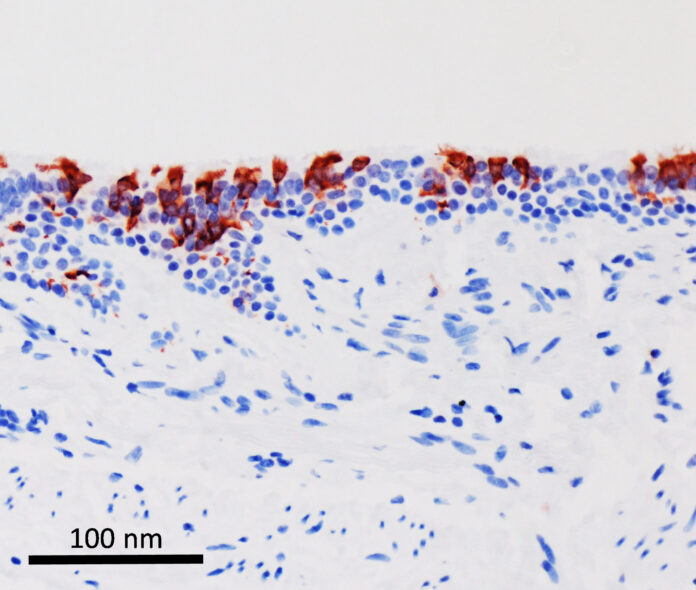
Recent research has shown that Omicron infects and multiplies 70 times faster than the Delta variant in human bronchus.
The Omicron variant, which was first discovered in late November, has now spread to 77 countries worldwide. The strain’s rapid spread has sparked concerns among health officials. As a result, multiple studies assessing the variant’s transmissibility and severity are currently underway. A recent study reported 5.4 times higher reinfection risk with the Omicron variant than Delta. Moreover, studies have also found a decreased vaccine effectiveness against the new variant. Now, a study by researchers at the University of Hong Kong has shed new light on Omicron’s transmissibility.
The team of researchers used lung tissue removed during lung procedures. Typically, they are discarded; however, researchers used it to compare the difference in replication between the original coronavirus strain, the Delta variant, and Omicron. They included tissue cultures from the lung and bronchus.
According to the preliminary study, the Omicron variant replicated 70 times higher than the other strains in the human bronchus. However, it multiplied more than 10 times lower in the human lung tissue. Thus, suggesting the virus’s low severity.
Variant Poses Significant Threat
Despite the lower disease severity, lead researcher Dr. Michael Chan Chi-wai believes the strain still poses a significant threat to public health.
It is important to note that the severity of disease in humans is not determined only by virus replication but also by the host immune response to the infection, which may lead to dysregulation of the innate immune system, i.e. ‘cytokine storm’.
Dr Michael Chan Chi-wai, lead researcher
He further stated that the more infections the virus causes, the more severe disease and deaths that can occur. His study’s data, combined with previous studies showing a reduced vaccine immunity, adds to the variant’s ability to spread faster and become more infectious. Furthermore, the multiple mutations present with Omicron’s spike protein can cause it to surpass all previous variants.
Current data suggests that Omicron causes mild infections; however, as more data emerges researchers hope to get a clearer picture of the new strain.
Source: The University of Hong Kong



